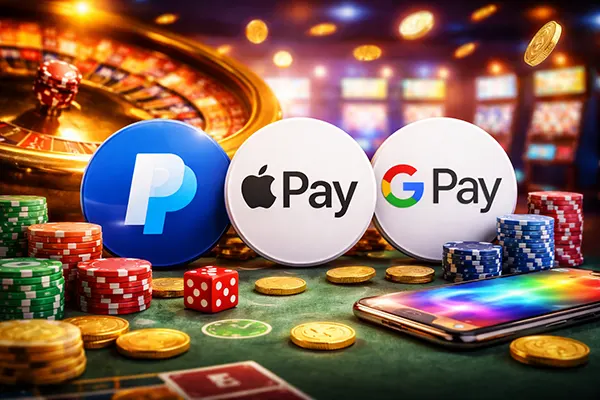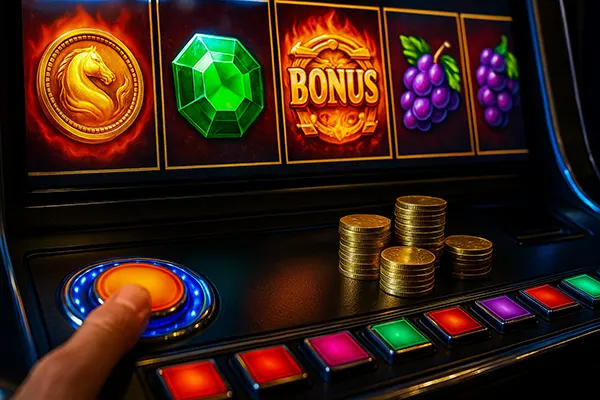
Why It Is Crucial to Control Emotions in Gambling
Gambling is a popular form of entertainment enjoyed by millions worldwide. However, the unpredictability of outcomes often triggers emotional reactions, both positive and negative. Managing emotions effectively is not only vital for maintaining a healthy relationship with gambling but also for ensuring personal well-being and financial stability. Players often underestimate how emotions, when left unchecked, can dominate their decisions and lead to significant consequences, such as financial loss or strained relationships. By focusing on emotional control, gamblers can create a safer, more enjoyable experience.
The Psychological Impact of Gambling
The excitement and uncertainty inherent in gambling can significantly impact the human mind. When players experience wins, the brain releases dopamine, a chemical associated with pleasure and reward. This sensation can be addictive, encouraging individuals to gamble more frequently in search of the same euphoria. Conversely, losses can trigger feelings of frustration, anger, and even despair. This emotional rollercoaster can create a cycle where individuals seek to recover their losses or prolong their winnings, often leading to irrational decisions.
Studies show that gambling engages the same neural pathways as other forms of addictive behaviour, such as substance use. Understanding this connection highlights the importance of being aware of one’s emotional state while gambling. Recognising how gambling affects the brain is the first step toward adopting a balanced and responsible approach to this activity. Furthermore, players who develop emotional awareness are better equipped to identify when their feelings begin to influence their choices negatively.
Recognising Emotional Triggers
Emotional triggers in gambling are specific situations or outcomes that provoke intense feelings. Common triggers include consecutive losses, high-stakes bets, or external stressors unrelated to gambling. Identifying these triggers allows players to implement strategies to mitigate their impact. For instance, taking a short break after a significant loss or avoiding gambling during periods of personal stress can help maintain emotional equilibrium.
Another effective method is keeping a gambling journal. By recording outcomes, decisions, and emotional states during gambling sessions, players can identify patterns and adjust their behaviour accordingly. Over time, this practice fosters self-awareness and resilience, enabling individuals to approach gambling more objectively.
The Role of Emotional Control in Responsible Gambling
Responsible gambling is impossible without emotional control. It serves as the foundation for setting limits, making informed decisions, and enjoying gambling as a recreational activity rather than a financial strategy. Emotional control prevents players from falling into the trap of chasing losses, a behaviour that often exacerbates financial difficulties and emotional distress.
One of the most common pitfalls in gambling is the urge to recoup losses immediately. This reaction, driven by frustration or desperation, often leads to higher bets and riskier decisions. Emotional control enables players to pause, reflect, and recognise that losses are a natural part of gambling. Instead of chasing losses, individuals can focus on sticking to their predetermined budget and time limits, ensuring a more sustainable and enjoyable experience.
Building Emotional Resilience
Emotional resilience is the ability to recover quickly from setbacks, such as a losing streak in gambling. Building this resilience involves adopting healthy habits that promote mental well-being. Techniques like mindfulness, meditation, and regular physical activity can help gamblers manage stress and maintain a balanced mindset.
Additionally, having a strong support system is crucial. Sharing experiences with trusted friends or family members can provide perspective and reduce the emotional burden of gambling. For those who struggle to maintain control, seeking professional counselling or joining support groups can be transformative, offering tools and strategies to navigate the challenges of gambling responsibly.

Practical Tips for Controlling Emotions
Practical strategies for managing emotions can significantly enhance the gambling experience, ensuring it remains enjoyable and safe. These tips are designed to empower players to make rational decisions and avoid emotional pitfalls:
Set Limits and Stick to Them
Establishing clear limits on spending and time before beginning a gambling session is essential. Decide on a budget and a maximum duration for play, and commit to them. These boundaries act as safeguards, preventing impulsive decisions influenced by emotional highs or lows. Players who adhere to their limits are less likely to experience financial strain or regret.
Extended gambling sessions can amplify emotions, particularly during challenging moments. Taking regular breaks allows players to step back, regain composure, and reassess their approach. During these breaks, engaging in relaxing activities such as stretching, deep breathing, or even chatting with a friend can help reset the mind and reduce stress.
Focus on Entertainment, Not Profit
Viewing gambling as a source of entertainment rather than a way to earn money is a mindset that promotes healthier behaviour. This perspective shifts the focus from financial outcomes to the enjoyment of the activity itself. Players who prioritise fun over profit are more likely to approach gambling with a relaxed and positive attitude, reducing the emotional stakes involved.
Seek Help When Needed
Recognising when gambling begins to negatively impact one’s emotions, finances, or relationships is critical. If this occurs, seeking professional help is a proactive step toward regaining control. Many organisations and helplines specialise in providing support for individuals facing gambling-related challenges, offering resources and guidance to promote responsible behaviour.
In conclusion, controlling emotions is a vital component of responsible gambling. By understanding the psychological impact of gambling, recognising emotional triggers, and implementing practical strategies, players can enjoy a safer and more fulfilling experience. Emotional control not only enhances decision-making but also protects against the potential risks associated with gambling. Always remember, the key to responsible gambling lies in maintaining balance, prioritising well-being, and approaching the activity with a clear and focused mind.





